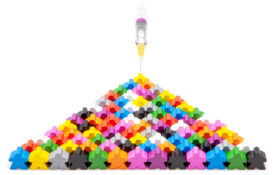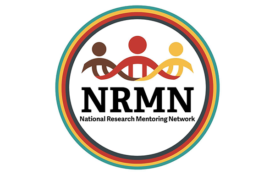-
‘Right Now Feels So Long and Without Any End in Sight’
Those thoughts, typed into a digital journal on May 30, could stand as an anthem for this tragic pandemic year, a cry recognized around the world without explanation or context. Yet there is plenty of context from this writer, richly detailed and in weekly installments: “We mourn time lost and experiences lost,” she continued, later. “But we remind ourselves often that we don’t have to mourn the loss of life, and for that we are grateful.” She cited a favorite slogan: We were together, I forget the rest. The entries are among more than 6,500 from some 750 people of all ages and diverse backgrounds who have been keeping digital diaries on the same platform.
-
As More Women Enter Science, It’s Time to Redefine Mentorship
WHEN A GROUP of researchers at NYU Abu Dhabi published a paper in Nature Communications last fall suggesting that young women scientists should seek out men as mentors, the backlash was swift and vociferous. Countless scientists, many of them women, registered their indignation on Twitter—some even penning open letters and their own preprints in response. The original paper had found that female junior scientists who authored papers with male senior scientists saw their papers cited at higher rates. But a number of critics contested the assertion that this result established a link between male mentors and career performance.
-

Individuals With Intellectual and Developmental Disabilities Were Excluded From COVID-19 Vaccine Priority Guidelines
It is critical that the entire I/DD population gains access to priority vaccines, writes developmental psychologist Emily Hotez.
-

When the Perfect Mentor Is Outside Your Network
The National Research Mentoring Network, supported by the U.S. National Institutes of Health, is a free social and professional networking tool that matches and facilitates mentoring relationships using evidence-based best practices and online resources.
-

But What’s It All For? Putting Practical Theories Into Action
Researchers suggest a number of incentives to support the development of more actionable theories in the face of what they term a “practicality crisis.”
-
The Pandemic Has Erased Entire Categories of Friendship
... American culture does not have many words to describe different levels or types of friendship, but for our purposes, sociology does provide a useful concept: weak ties. The term was coined in 1973 by the Stanford sociologist Mark Granovetter, and it comprises acquaintances, people you see infrequently, and near strangers with whom you share some familiarity. They’re the people on the periphery of your life—the guy who’s always at the gym at the same time as you, the barista who starts making your usual order while you’re still at the back of the line, the co-worker from another department with whom you make small talk on the elevator.

